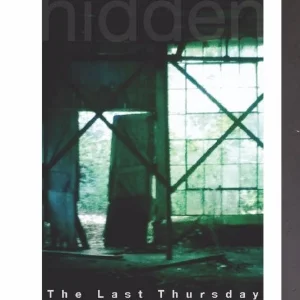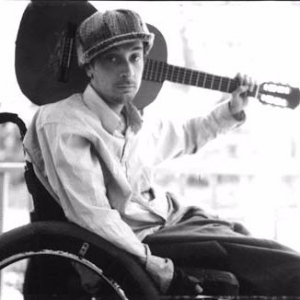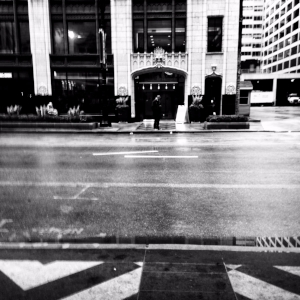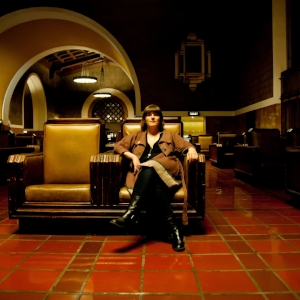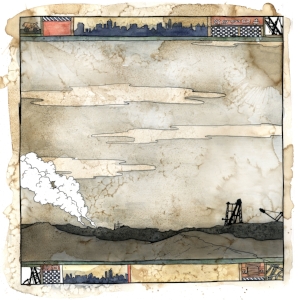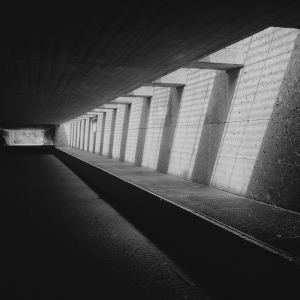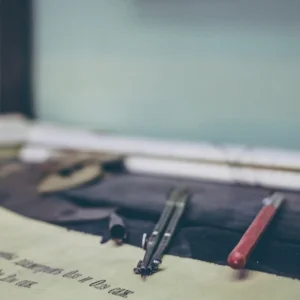Last Thursday (in Fragments) - "Interpretation"
"Everything is to be had at such a bargain that it is questionable whether in the end there is anybody who will want to bid."
Tape Extracts:
Don Chambers: Andrei Tarkovsky talks a lot about poetics in film and the idea that he's making something that, the interpretation has as much to do with the audience as it does to do with the filmmaker and that they are trying to make a piece of art that, a piece of film, that is participatory and he's not giving you. It doesn't have a, it's not telling you what it is. It's allowing you to make it something.
I don't believe any technology should be a limitation. Dylan was a huge influence on that early on. I admire people who are willing to follow what's important and the monetary part of it is really not all that interesting. It would be lovely, but it's not interesting and it doesn't make good art. It might make a cooler looking video or get into a better studio, but...
It's Werner Herzog who, he talks about, he stole the camera from his film school to shoot his first movie. This kind of we've got to do this any way we can possibly do it and if you don't have the burn to be able to do that then you won't do it.
Garrett Tiedemann: The films that you did for these, did you make them or did you have other people help you make them?
Don: I made them. They're all over the place though. Some of some of them I filmed, some of them I took YouTube stuff and messed with it, mashed it up together, so it's a little bit of it's kind of across the board.
Garrett Tiedemann: And then when you play them would they be background or would they have their own place where the point was just...
Don: No they would have there they would have their own place.
Don Chambers (in film excerpt): I was recently hired to copy the Encyclopedia Britannica. My name is Jobez Wilson. I'm a pawn broker. My assistant recently drew my attention to an advertisement in the paper for an opening in the League of Red Headed Men. A foundation established by the late Ezakaya Hopkins to promote the interests of red headed men by paying them to perform small tasks. As my pawn shop had been in decline of late, this was a welcome opportunity. While there were many other red headed applicants waiting in line the day of the interview. Miraculously I was hired.
My job was to copy the pages of the Encyclopedia Britannica. I only had to provide pen and paper. I went home that evening in high spirits, but soon became perplexed. This must be some kind of hoax, or fraud. He's paid so well for such a simple task. This copying the Encyclopedia Britannica.
Well, the next day I arrived to the office at ten o'clock and everything was as it should be. Duncan Ross, my employer, started me off on the letter A and at two o'clock bid me good day and complemented me on the amount I had written. Every day I work a four hour shift copying and I was paid handsomely. The only stipulation of the job was that I must not leave the room during my shift.
Every day was the same and it suited me well.
Eight weeks later I was nearly finished with all the A entries and looked forward to moving onto the Bs when it all stopped. I went to the office that day only to see a sign tacked to the door. I was disappointed, I was confused, bewildered, so I turned to the only man in town who I thought could help.
Don: Second month was random. It was the theme. Pretty sure that's the month that I just with my iPhone I filmed clouds in the sky and for like ten second pieces of clouds in the sky. And I did that for the month. And then at the end put that all together and coupled it with some Charles Fort, the guy who wrote the first book that was all about anomalies and he collected frogs falling from the sky and you know just strange anomalies so I kind of mashed those two up together just to bring up some ideas.
I've gone through periods of time where I wished I was someone who could just get a job, buy a car, and have a nice house and come home and we'd have dinner and then we'd watch a movie and then we'd get to bed and you get up and do it again the next day.



